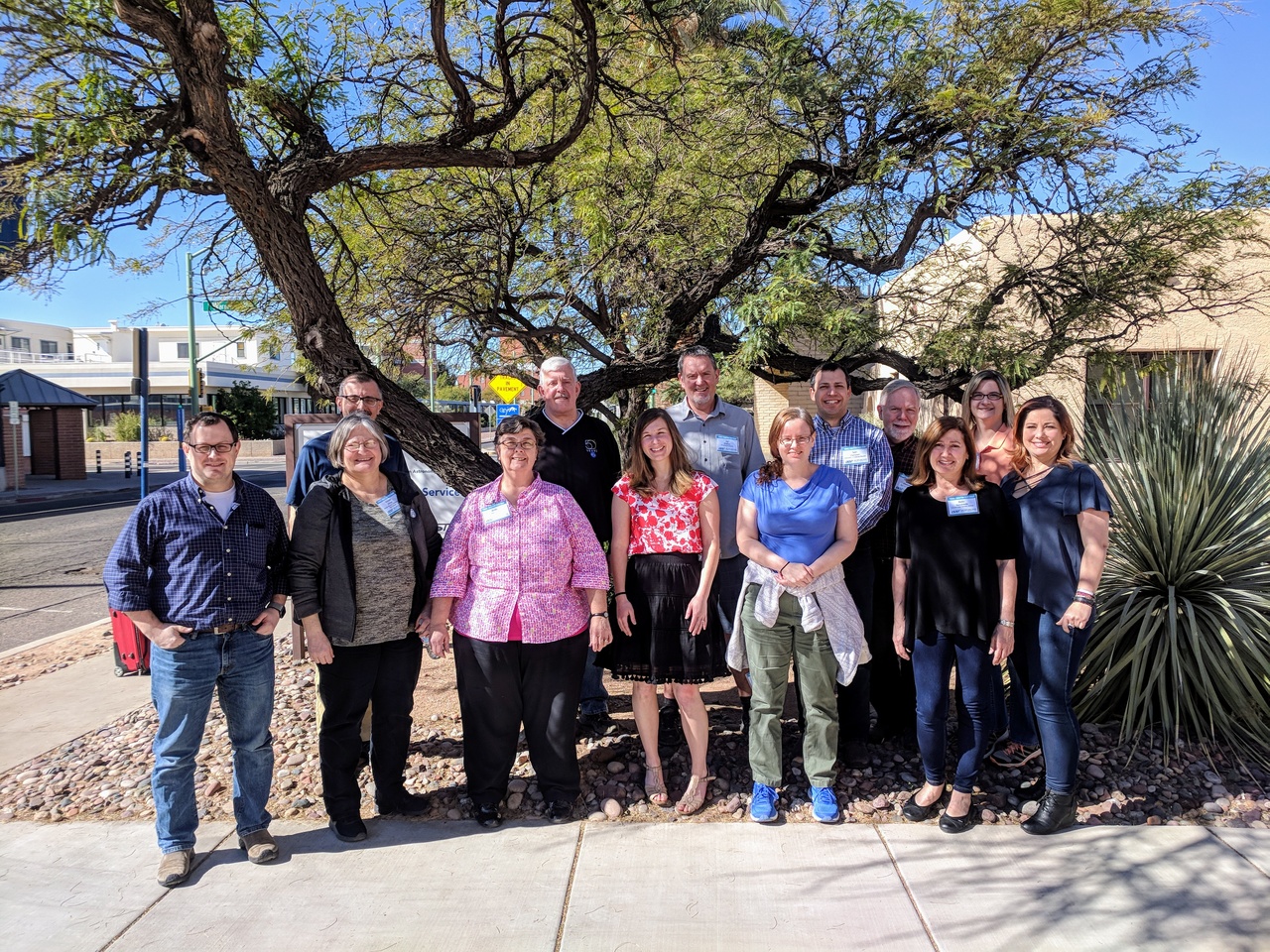February 16, 2018 - An Education and Public Outreach (EPO) focus group for teachers was held in Tucson on February 3-4. Led by LSST Education Specialist Ardis Herrold, the event gathered 11 high school and college educators from across the U.S. to solicit feedback on prototypes of the online educator tools, including Jupyter Notebook-based interactive astronomy investigations, currently being developed by the EPO team. Opinions provided by the participants will help guide future stages of EPO product development, ensuring the continued alignment of EPO products with educator needs.
Over the course of the two-day focus group meeting teachers were introduced to the suite of online tools that will be available through EPO’s Education Hub. The Education Hub, a section of the larger EPO Portal, will house resources specific to educators such as national education standards alignment and assessment guides, information about professional development opportunities, and classroom investigations featuring real LSST Data in Jupyter Notebooks.
“This meeting was important,” reflected Ardis, “because it was the first time anyone other than our team has looked at what we’re developing. Although we anticipated there would be some confusion with the notebooks, we were pleasantly surprised at how easily the teachers figured out how to work with them.”
Throughout each day, teachers filled out detailed questionnaires created by EPO Evaluation Specialist Ellen Bechtol in order to capture their reactions to the material presented. “The central question of whether they would use these tools in their classroom,” says Ellen, “was answered by this group with a strong ‘yes.’” All of the feedback from this focus group will help the EPO team prioritize product features so that time and resources are spent on those most useful to educators.
The teachers who participated in this focus group meeting were carefully selected by the EPO team for their expertise in both astronomy and education. The fact that they were enthusiastic about the direction of LSST’s EPO products is encouraging, but it’s only one piece of the puzzle; once the EPO team has had the chance to refine the notebooks a bit further, they will seek opinions from a group that represents a more typical population of educators. That focus group is currently scheduled for July 16-18. In the meantime, Ardis hopes to conduct an informal event for local educators and/or astronomy students. “If we can test reactions to some of the individual components ahead of time,” she says, “We can refine the way we will present them to the teachers in July in order to get the quality feedback we need.”
More information about the full range of LSST EPO activities can be found in this news item from October 2017. Additional photos from the focus group meeting are available in the LSST Gallery.


